
Excerpts from latest analyst reports...
AIRLINE SECTOR: Haitong says surging fuel bill risk discounted
Alongside the hikes in gasoline and diesel prices, the National Development and Reform Commission (NDRC) raised the domestic jet fuel price by about 500 yuan/tonne or 7-8% on April 7.
The latest price adjustment, the second this year after the hike on February 20, was widely anticipated, given that the scale of the upsurge in international jet fuel prices during the interim already breached the trigger point for an upward adjustment of the domestic counterpart.
While fuel bills would inevitably increase for the airlines amid a sustained rebound in fuel prices in recent months, the impact would be mitigated by the collection of a fuel surcharge. The surcharge mechanism for domestic routes changed in November 2009, whereby the NDRC loosened control and granted mainland airlines autonomy to impose surcharges, which allows for more timely adjustments.
Carriers can pass on a maximum of 80% of a hike in fuel costs if domestic fuel prices are higher than 4,140 yuan/tonne, although the airlines also possess an alternate way of managing their profitability by varying ticket prices.
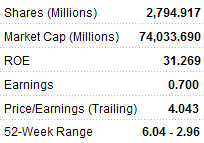
Against the backdrop of resilient traffic demand, China Southern Airlines (HK: 1055, 3.24 hkd, BUY), the most heavily dependent on domestic routes among the big three mainland carriers and hence on the domestic sourcing of jet fuel, guided that the fuel surcharge compensated for about 70-80% of the fuel price hike in FY10.
Assuming the need to absorb about 20% of the increased fuel bill, Haitong estimates that the latest price hike would cut CSA’s profit by about 5%. Given their undemanding valuations after underperforming in recent months, Haitong believes airline stocks are fundamentally cheap and the possible earnings risk largely discounted.
See also: SHENZHEN STORIES: Air Hostess Sees Industry Taxiing For Major Takeoff
COAL SECTOR: Haitong says CHINA QINFA to benefit from rising spot prices
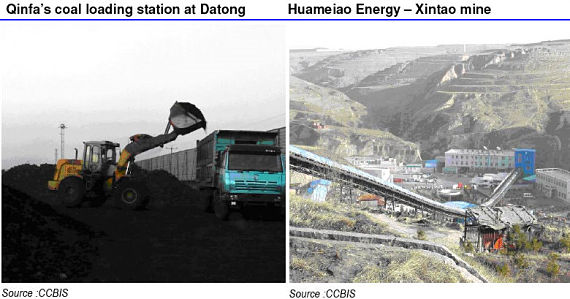
China’s NDRC urged coal companies to “remain disciplined” in keeping key contract coal prices at last year’s level and not to violate regulations by raising sales prices, reducing quality or trimming key contract sales volume.
Moreover, the NDRC noted that each province should maintain a safe and stable supply. The commission will strengthen its investigative efforts and file charges if illegal activities are discovered in major coal producing regions.
Haitong said the NDRC’s admonition is another signal that upward pressure on spot coal price remains unabated. The transportation bottleneck, which constitutes a structural obstacle to coal supply, is the main price driver.
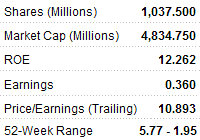
Coal inventories of key power plants fell 9% m-o-m in March to 50 mln tonnes, representing 14 days of consumption. At the same time, coal inventory at Qinhuangdao continued to fall to 6.8 mln tonnes from 8.5 mln over the past month.
The decline in inventory at power plants and ports means that power producers will need to rebuild their inventory, which will push the price upwards.
Additionally, the volume of imported coal in February fell to 6.8m tonnes, representing a 48% yoy and 59% m-o-m plunge, mainly attributable to a shrinkage in supply from Australia and the resulting hike in the international coal price.
In contrast to the state-controlled electricity prices that are not allowed to increase in an environment of accelerating inflation, the domestic spot price of coal is poised to rise further as a result of limited supply and the coming peak summer season for coal demand.
Haitong said it expects China Qinfa (HK: 866, BUY) to be one of the major beneficiaries from rising domestic coal prices.
See also: HK-LISTED CHINA QINFA Jan-Sept Coal Trade Volume Surges 186%
PROPERTY SECTOR: Haitong says increase in financing costs discounted
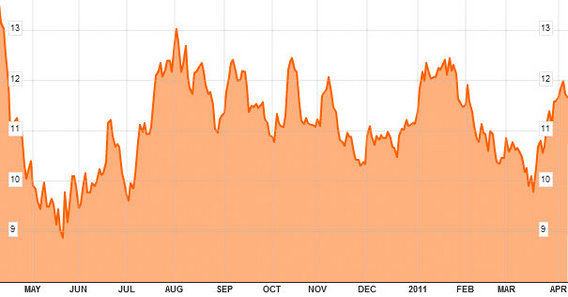
The People’s Bank of China, the country’s central bank, announced that effective April 6, the benchmark one-year deposit and lending rates have been raised by 25 bps, while the five-year lending rate was lifted 20 bps to 6.80%.
The increases are negative for China’s property sector, as financing costs for both buyers and developers will increase subsequently. However, Haitong believes the overall impact is manageable.
Since last October, the lending rate for five-year and longer tenure has been raised four times, from 5.95% to 6.80%. Haitong estimates the cumulative increase of the mortgage monthly installment for first-home buyer comes in at about 9%, whilst the impact of the latest rate hike is estimated at about 2%.
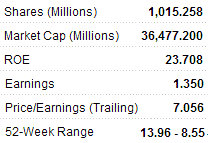
For Hong Kong-listed mainland developers, the rate hikes didn’t pose material impact as a majority of them have been increasingly relying on offshore financing after the tightening of domestic banking facilities since 2Q10, with the exception of those highly leveraged counters, e.g. Guangzhou R&F (HK: 2777, HOLD) and Greentown China (HK: 3900).
Generally speaking, the hikes were widely expected and the downside risk was mostly discounted, in Haitong’s view. As a majority of China developers are trading at sizeable discount to its assessed NAVs, Haitong continues to hold a positive view of the sector in FY11.
See also: HYSAN DEVELOPMENT: Dedicated Renter Undervalued In Hong Kong
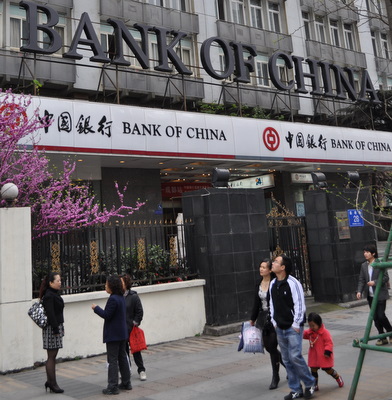
BANKING SECTOR: Haitong says BOC among lenders to benefit
The Hong Kong Monetary Authority (HKMA) has suggested local banks simplify procedures for the sale of traditional investment products to retail investors.
Sales of bonds issued by the HKSAR government, the Chinese Ministry of Finance, as well as certain plain vanilla investment products approved by the SFC that do not involve derivatives or leverage, will no longer require voice recordings.
However, the easier treatment does not apply to any complicated investment products such as bonds that are below investment grade or debt issued by non-rated institutions.
Any efforts to simplify investment procedures should be welcomed by banks and investors alike. Ever since the demise of Lehman Brothers in 2008, which led to the default on billions of dollars’ worth of mini-bonds, local banks have been extremely cautious in their sale of investment products to retail customers.
Formerly popular products such as equity-linked notes were withdrawn from sale to retail investors altogether, while the sale of even safe and simple products such as renminbi bonds by commercial banks requires lengthy risk assessment and voice recording procedures that turn off all but the most patient customers.
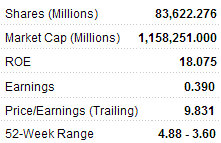
Only banks with sizeable private banking departments such as HSBC Holdings (HK: 5, BUY) and Hang Seng Bank (HK: 11. BUY), whose wealthy customers are classified as professional investors and are thereby subject to less onerous sales procedures, were able to generate meaningful wealth management income after the financial tsunami.
Haitong says it expects wealth management income for most other Hong Kong-listed banks to rebound this year after almost grinding to a halt following the Lehman mini-bond debacle. Banks that will be best positioned to benefit from a revival of investment product sales to retail investors include BOC Hong Kong (HK: 2388, 25.40 hkd, BUY) and Dah Sing Banking Group (HK: 2356, 12.74 hkd, BUY).
See also: CHINA SHARES: Banking On April Bounceback



